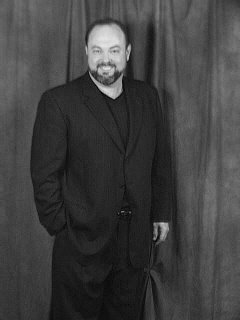
In St. John 17 our Lord Jesus prays what New Testament scholars have called the "High Priestly Prayer," and in this prayer, our Lord, before He goes to the Cross, asks the Father that His people "may be one as We are." (John 17:11)
In fact, Jesus asks the Father to make His disciples one as He and the Father are one three times, once in John 17:11, then again in 17:21 and 17:22. Three times the Lord asks the Father to make His people one like the Father and the Son are one.
No wonder a clear, faithful, and patristic understanding of the mystery of the Trinity is necessary before anyone can appreciate the mystery of the Body of Christ.
So, the standard of the Body of Christ, the Church, is set by Christ Himself. The goal, the work, the path, the point of the Church is to experience the unity that the Father and the Son have experienced forever. This is the invitation to "mere" mortals. This is the adventure and the purpose of the Church, to be one as the Father and the Son are one. This level of unity is not simple agreement on a cause or goal, but goes beyond an association to the heart of mystery and awestruck wonder.
It is no mistake that it was contemplating this prayer of Jesus on behalf of His Church that first got me to abandon the notion of Church as the assembling of individuals to learn how to be Christian, or get "fired up" for the Lord.
No, nothing less than a willingness to jettison this "small" vision of the Church will help us see the grandeur and majesty that we are each called to experience as persons in communion in the Church.
This means the Church is not some accident of eschatology, or some parenthesis in God's timetable, but the very reason Christ came to the earth, to establish His Church, His mystical Body, His Kingdom on earth. It is this majestic understanding of the Church that makes sense of the salvific work of our Lord Jesus to redeem humanity and conquer death.
To enter into this vision of the Church requires me to also re-evaluate my own anthropology. What is a human?
It was coming to see a distinction between "person" and "individual" that began to open my own soul to this divine mystery of the Church. It was as I began to apply the patristic understanding of the Trinity to anthropology that a clear distinction was made between being an individual and being a person.
Metropolitan Zizioulas in his book "Being As Communion" declares that the very heart of authentic personhood is communion, that one cannot be an authentic person outside of a communion relationship. the metropolitan draws this from the mystery of the Trinity and the divine Persons in Communion. The Father cannot be eternally the Father without an eternal Son. The Spirit is eternally proceeding from the Father and His Personhood is bound up with His relationship between the Father and the Son. The divine Persons are known and know in relation to each Other.
This gets a bit esoteric for me at times, but the heart of this is the incredible message that we, created, humans are invited by God's grace to experience this kind of communion between each other and with the Holy and life-creating Trinity.
And it is precisely this invitation, this "Good News", that makes sense of Christ's birth, life, death, burial, resurrection, ascension, and second coming. All of His salvific work is tied up in moving us from disconnected, cut-off, dead and dying, slaves to our own selfishness, to the deifying communion of His eternal, new Life.
Standing on the precipice of my own self-centered ego, I confess a fear of looking too long at this mystery. It is still too bright for me, and this truth judges my own struggles with self-deception, hiding, and fear of being "taken advantage of." My self-schisms, my own disjointed heart is manifested in the disjointed relationships around me, ultimately seen in my continual struggle to be "in communion" with Christ and His Church.
I confess this subject is getting the better of me. I was hoping to make these works a few treatise on ecclesiology, but Great Lent has captured me and insisted that I risk honesty for my own salvation. It is the Church that I need. It is the Church that I must attain. It is the Church that will be to me my Anchor and Salvation. It is the Church or the hell of eternal fragmentation in my own soul and in my relationships with others and, ultimately, my relationship with God Himself.
“I am the true vine, and My Father is the vinedresser. Every branch in Me that does not bear fruit He takes away; and every branch that bears fruit He prunes, that it may bear more fruit. You are already clean because of the word which I have spoken to you. Abide in Me, and I in you. As the branch cannot bear fruit of itself, unless it abides in the vine, neither can you, unless you abide in Me. “I am the vine, you are the branches. He who abides in Me, and I in him, bears much fruit; for without Me you can do nothing. If anyone does not abide in Me, he is cast out as a branch and is withered; and they gather them and throw them into the fire, and they are burned. 7 If you abide in Me, and My words abide in you, you will ask what you desire, and it shall be done for you. By this My Father is glorified, that you bear much fruit; so you will be My disciples." (John 15:1-8)




